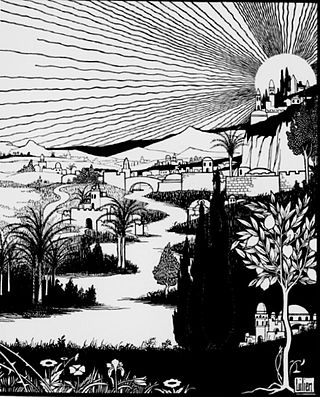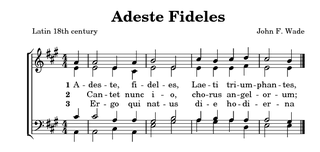The Grail or Holy Grail is a mythical object of Arthurian legend.
Contents
Grail may also refer to:
The Grail or Holy Grail is a mythical object of Arthurian legend.
Grail may also refer to:

The Holy Grail is a treasure that serves as an important motif in Arthurian literature. Various traditions describe the Holy Grail as a cup, dish, or stone with miraculous healing powers, sometimes providing eternal youth or sustenance in infinite abundance, often guarded in the custody of the Fisher King and located in the hidden Grail castle. By analogy, any elusive object or goal of great significance may be perceived as a "holy grail" by those seeking such.
Mercury commonly refers to:
Many Wikipedia articles on religious topics are not yet listed on this page. If you cannot find the topic you are interested in on this page, it still may already exist; you can try to find it using the "Search" box. If you find that it exists, you can edit this page to add a link to it.

Zion is a placename in the Hebrew Bible used as a synonym for Jerusalem as well as for the Land of Israel as a whole.
Flow may refer to:

The New American Bible (NAB) is an English translation of the Bible first published in 1970. The 1986 Revised NAB is the basis of the revised Lectionary, and it is the only translation approved for use at Mass in the Latin Church Catholic dioceses of the United States and the Philippines, and the 1970 first edition is also an approved Bible translation by the Episcopal Church in the United States.
Babylon was the capital city of Babylonia in ancient Mesopotamia, Middle East.

Grail was a free extensible multi-platform web browser written in the Python programming language. The project was started in August 1995, with its first public release in November of that year. The last official release was version 0.6 in 1999.
The Crusades were a series of religious wars sanctioned by the Latin Church in the medieval period. Crusading movement is about the ideology and institutions associated with crusading.

The Liturgy of the Hours or Divine Office or Opus Dei are a set of Catholic prayers comprising the canonical hours, often also referred to as the breviary, of the Latin Church. The Liturgy of the Hours forms the official set of prayers "marking the hours of each day and sanctifying the day with prayer." The term "Liturgy of the Hours" has been retroactively applied to the practices of saying the canonical hours in both the Christian East and West–particularly within the Latin liturgical rites–prior to the Second Vatican Council, and is the official term for the canonical hours promulgated for usage by the Latin Church in 1971. Before 1971, the official form for the Latin Church was the Breviarium Romanum, first published in 1568 with major editions through 1962.
Michael Baigent was a New Zealand writer who published a number of popular works questioning traditional perceptions of history and the life of Jesus. He is best known as a co-author of the book The Holy Blood and the Holy Grail.
The Jesus bloodline refers to the proposition that a lineal sequence of descendants of the historical Jesus has persisted to the present time. The claims frequently depict Jesus as married, often to Mary Magdalene, and as having descendants living in Europe, especially France but also the UK. Differing and contradictory Jesus bloodline scenarios, as well as more limited claims that Jesus married and had children, have been proposed in numerous modern books. Some such claims have suggested that Jesus survived the crucifixion and went to another location such as France, India or Japan.

Psalm 137 is the 137th psalm of the Book of Psalms in the Tanakh. In English it is generally known as "By the rivers of Babylon", which is how its first words are translated in the King James Version of the Bible. Its Latin title is "Super flumina Babylonis".
Camino may refer to:

A hymn tune is the melody of a musical composition to which a hymn text is sung. Musically speaking, a hymn is generally understood to have four-part harmony, a fast harmonic rhythm, with or without refrain or chorus.

Since the 10th century BCE, Jerusalem has been the holiest city, focus and spiritual center of the Jews. Jerusalem has long been embedded into Jewish religious consciousness and Jews have always studied and personalized the struggle by King David to capture Jerusalem and his desire to build the Holy Temple there, as described in the Book of Samuel and the Book of Psalms. Many of King David's yearnings about Jerusalem have been adapted into popular prayers and songs. Jews believe that in the future the rebuilt Temple in Jerusalem will become the center of worship and instruction for all mankind and consequently Jerusalem will become the spiritual center of the world.
The Holy Grail is a mystical object in the Arthurian legend.

Psalm 87 is the 87th psalm of the Book of Psalms, beginning in English in the King James Version: "His foundation is in the holy mountains.". In the slightly different numbering system used in the Greek Septuagint and Latin Vulgate translations of the Bible, this psalm is Psalm 86. In Latin, it is known as "Fundamenta eius in montibus sanctis". It was written by the sons of Korach. It describes Jerusalem as the center of the world or the "mother of nations", where God placed the Torah.

Psalm 99 is the 99th psalm of the Book of Psalms, beginning in English in the King James Version: "The LORD reigneth; let the people tremble". The Book of Psalms starts the third section of the Hebrew Bible, and, as such, is a book of the Christian Old Testament. In the slightly different numbering system in the Greek Septuagint version of the Bible, and in the Latin Vulgate, this psalm is Psalm 98, beginning "Dominus regnavit". It is the last of the set of additional Royal Psalms, Psalms 93-99, praising God as the King of His people. There is no title in the Masoretic text version, but the Septuagint provides a title: "A psalm of David".
The Grail Psalms refers to various editions of an English translation of the Book of Psalms, first published completely as The Psalms: A New Translation in 1963 by the Ladies of the Grail. The translation was modeled on the French La Bible de Jérusalem, according to the school of Fr. Joseph Gelineau: a simple vernacular, arranged in sprung rhythm to be suitable for liturgical song and chant. All official Catholic English translations of the Liturgy of the Hours use the Grail Psalms.